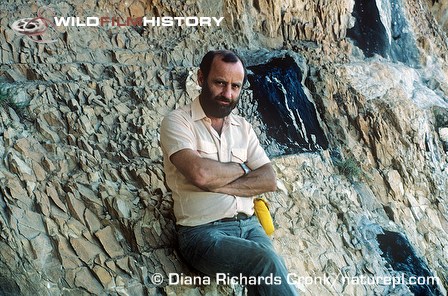Lyndon Bird

A long-serving BBC sound recordist, Lyndon (Dickie) Bird started work at the BBC in the early 1960s. Initially working in London, he soon moved to Bristol where he joined the Film Unit in the late 1960s. As the Film Unit was intimately involved with the Natural History Unit (NHU), working for the NHU took up a major part of Dickie's time over the years and when given the choice, he always chose natural history projects over dramas.
Dickie's first major natural history series was Eastward with Attenborough in the early 1970s, which took him out to the Far East on a three month expedition with David Attenborough. He then jumped at the chance to work on the BBC's groundbreaking series Life on Earth, which took two and a half years in the making, and meant working again with colleagues David Attenborough and Richard Brock.
Dickie's tasks as a natural history sound recordist on location included the recording of background atmosphere tracks, as well as recording synch pieces with the presenter. For the background recordings, he would often wander off on his own first thing in the morning and later in the evening when it was still dusk, when there was not enough light to film. He found this the best time to record the atmosphere sounds, as the animals were generally quieter in the daytime.
Although Dickie has worked on many of the big Attenborough series such as The Private Life of Plants and The Life of Birds, the series that has given him particular pleasure was Life on Earth, as it was, "groundbreaking in everything that it approached at that particular time".
Dickie won a BAFTA TV award for Best Film Sound for The Living Planet in 1985.



